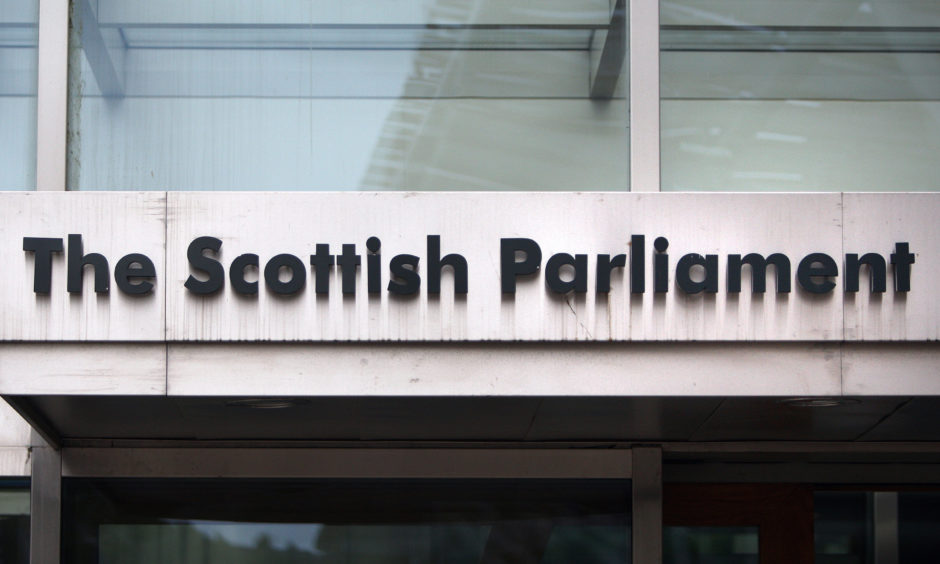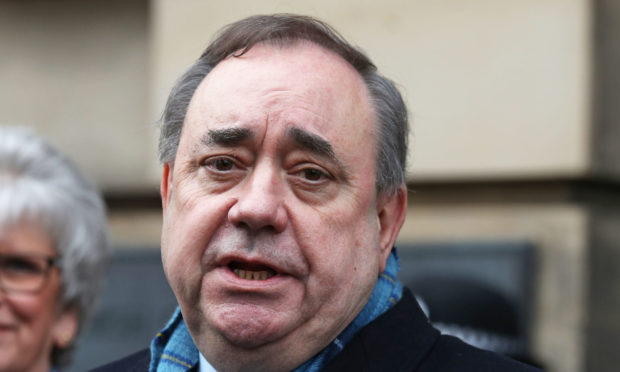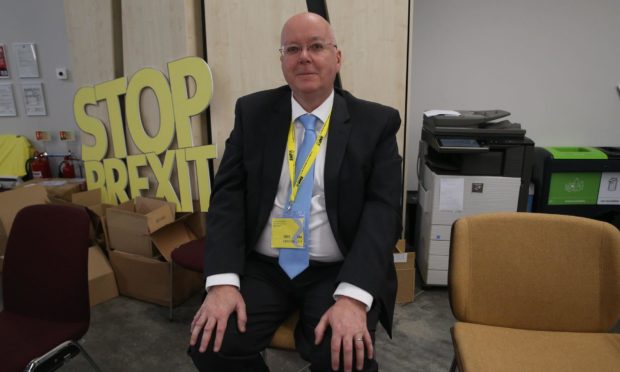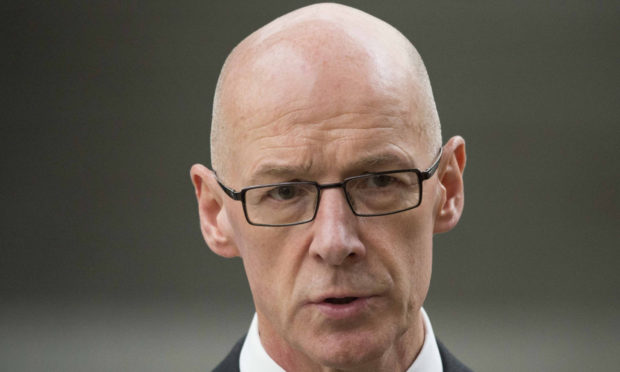Alex Salmond has been warned by the Crown Office it would be illegal to release material related to his criminal trial to MSPs investigating the handling of harassment claims against him.
Scotland’s prosecution service told Mr Salmond it would be a “criminal offence” for the documents to be made public.
The former first minister’s lawyer has suggested the Crown Office’s stance will hamper his client’s ability to give evidence to MSPs sitting on Holyrood’s Salmond Inquiry.
The Crown Office warning was made “in the strongest terms”, according to a letter to the inquiry from Mr Salmond’s lawyer David McKie of Levy and McRae.
The Crown identify that it would constitute a criminal offence for us to release certain material obtained as part of the disclosure in the trial. Both our client and we absolutely have no alternative but to respect that obligation.”
Alex Salmond’s lawyer, David McKie
The letter was sent to the Holyrood inquiry after it was revealed Police Scotland is investigating the leak of WhatsApp messages relating to Mr Salmond’s trial.
Last week it emerged the Crown Office had instructed officers to investigate how messages appearing to show Nicola Sturgeon’s husband, Peter Murrell, backing police action against Mr Salmond were made public.
The electronic messages came to light when they were passed to SNP MP Kenny MacAskill from an anonymous source. Mr MacAskill has given them to the Holyrood Committee as well as the Crown Office.
One line of inquiry will be whether these messages were part of a dossier passed on to Mr Salmond’s legal team by the Crown as part of the disclosure process in his criminal trial. Scots law states an accused person and his legal representatives are allowed only to use the disclosed information for the purposes of conducting the criminal proceedings.
Mr Salmond was cleared of all sexual offence charges in March this year.
In his letter, Mr McKie wrote: “The Crown have reminded us in the strongest terms of the legal restrictions which we have referred to in our correspondence to date.
“The Crown identify that it would constitute a criminal offence for us to release certain material obtained as part of the disclosure in the trial. Both our client and we absolutely have no alternative but to respect that obligation.”
Mr McKie suggested the Holyrood committee should raise the recovery of the documentation with the Scottish Government and the Crown Office, “whom we do not believe are subject to the same restrictions”.

The lawyer added that the legal position would have an impact on the evidence Mr Salmond could give to the Holyrood inquiry.
“Pertinent material exists which was secured in the process of the trial via warrant served on the Scottish Government by the Crown,” Mr McKie wrote. “Our client cannot realistically therefore provide a statement or documents which are partial and piecemeal.
“Any meaningful statement necessarily will involve reference to a large amount of the material which he is not permitted to release (and in some cases even access or refer to).”
Mr McKie added: “The exercise of sifting material which is not protected by such restrictions is a complex and lengthy one which requires legal input. The costs associated with that are prohibitive.
“Our client remains committed to assisting the committee where he lawfully can. His position remains of supporting maximum disclosure within the constraints of the existing court orders and undertakings. We have made our proposals as to how best the committee can achieve the necessary recovery of evidence. We await your substantive response on how and when that is to be achieved, particularly in light of this latest letter from the Crown.”
The Holyrood committee was set up to investigate the botched Scottish Government inquiry into harassment claims made against Mr Salmond.
The inquiry was established after Mr Salmond took successful civil legal action against the Scottish Government with a court deciding that its internal inquiry was tainted with apparent bias. Mr Salmond’s victory resulted in the Scottish Government paying out more than £500,000 to cover the former SNP leader’s legal costs.
A letter from John Swinney
In other correspondence released to the committee, Deputy First Minister John Swinney said the government intended to go to court in a bid to disclose documents it holds relating to the civil case.
The documents in question are thought to relate to the Scottish Government’s internal inquiry and their release is being objected to by Mr Salmond.
Mr Salmond has previously threatened legal action against the government to prevent it from handing over evidence to the Holyrood inquiry. The former first minister’s lawyers said the government had indicated it intended to produce submissions to the inquiry which in their view represented “a clear breach of court orders and undertakings”.
But Mr Swinney said his government intended to “initiate legal proceedings to seek a ruling on whether specific documentation” held by the Scottish Government was covered by an undertaking given by the Scottish Government to the Court of Session early last year.
But Mr Swinney’s letter revealed the government and Mr Salmond have agreed the release of a 120-page court document of the two sides’ pleadings in the civil legal action won by the former first minister. The Scottish Government has also released a seven-page chronology of its approach to the civil case.


